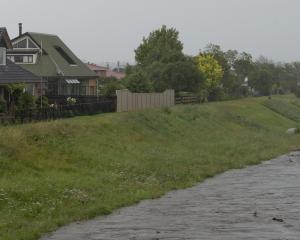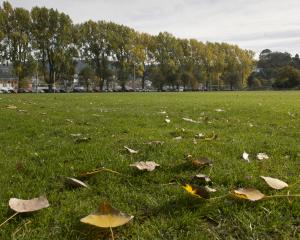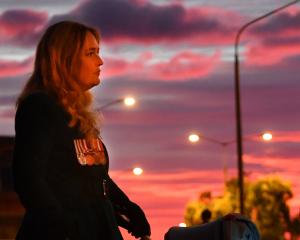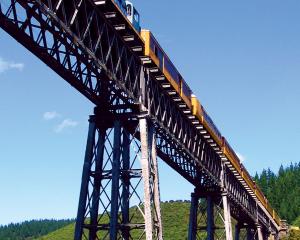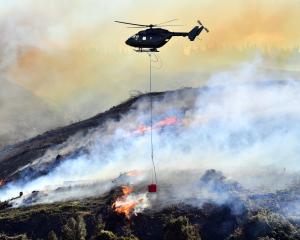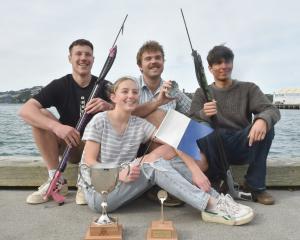
An almost $13 million profit from the Dunedin City Council's companies has helped slash debt levels across the group by $23 million in a year, new figures show.
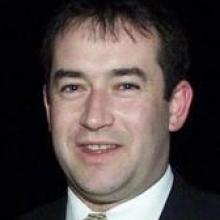
The figures came with the release of Dunedin City Holdings Ltd results for the 2014-15 year yesterday, which showed group debt had dipped below $600 million for the first time in years.
Total group borrowings - covering the council, its companies and including stadium-related debt - had dropped from $621 million in 2013-14 to $598 million by June 30 this year.
That reduced debt came on the back of a $12.95 million profit by the companies in the last year, the figures showed.
That was up slightly from $12.5 million in 2013-14, but down from the $20.5 million achieved in 2012-13.
The return still allowed the companies to distribute $15.7 million in dividend, subvention and interest payments from DCHL to the council this year.
Council group chief financial officer Grant McKenzie said the ''good result'' represented a ''solid return'' for the companies in the last year.
''I think that's a good outcome. I think the whole group's done well this year. All the entities have performed well and I think that's been a real highlight.''
The results were led by Aurora, which recorded a $8.1 million profit - slightly up on the $7.6 million it made last year.
City Forests' profit of $7 million was down from $8.29 million last year, and even further back from the $14.6million it made in 2012-13.
Delta's profit was up slightly, at $4.65 million compared with $4.37 million in 2013-14. Dunedin International Airport banked $1.7 million, compared with $1.85 million last year.
Taieri Gorge Railway also managed to convert last year's small loss, of $51,000, into a small profit, of $173,000, this year.
Outside the group, council-owned DVML met its budget for the first time even while delivering a loss of $1.015 million for 2014-15, DCHL chairman Graham Crombie said.
The company's loss was expected in a financial year when Forsyth Barr Stadium hosted no All Blacks tests, after staging two in the previous financial year, DVML's report said.
Mr Crombie told the ODT it was a ''fantastic'' result given the All Blacks' absence, ''so we will take that''.
DVML delivered a net surplus of $2.3 million for the year, but dropped into the red once its $4 million stadium rental was deducted.
That was set to change next year, when changes introduced with the council's stadium review - including dropping annual rent to $2 million - were expected to help DVML start delivering small but growing profits.
Mr McKenzie said the group's results reflected ''some good management within the group'', but also a cold winter, which ''really assist Aurora''.
Forestry was also still trading well, despite an increasingly difficult market, he said.
DCHL chairman Graham Crombie, in his report, was pleased profits across the group remained consistent with last year's results, which highlighted the companies' ''strong commercial base''.
Cashflow across the group rose from $30million last year to $32.5 million this year, he said.
Aurora was continuing to reinvest more in its network, as part of a plan to spend $372 million over the next decade, he said.
That included a $21 million increase in spending on its property, plant, and equipment in the last year, he said.
He was also pleased by reducing debt levels across the group, with all companies except Aurora reducing debt through improved cashflow management.
Delta's position had also improved following its painful exit from civil construction operations, which allowed it to focus on ''core services'', he said.
Delta chief executive Grady Cameron said the company had benefited from securing and renewing long-term contracts, while growing revenue by 6%, from $96.6 million to $102.5 million.
The DCHL group's position was expected to change again next year, when DCHL's payments to the council dropped from $15.7 million a year to $11.2 million a year for the next three years.
That reflected reduced dividends to DCHL from Aurora, while it focused on its network reinvestment programme, but the impact would ''naturally'' be felt during the council's annual budgeting process.
Mr Crombie said the outlook for the next year continued to look ''favourable'', while Mr McKenzie predicted the year ahead would be ''solid but not spectacular''.



